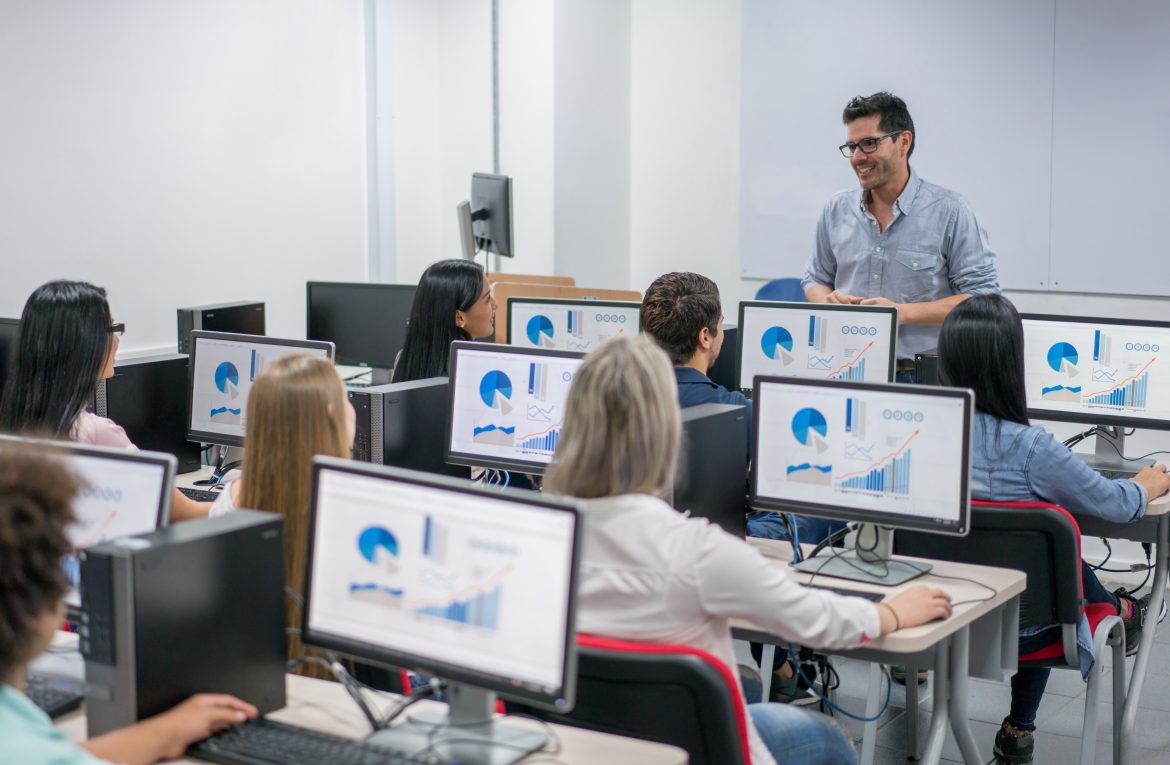The Multifaceted Role of the COO in Steering Lebanese Tertiary Education Through Crisis and Beyond
written by Youssef Bassim

Happy teacher giving an IT class at school to a group of students using computers - education concepts. Image on screens were made from scratch by us.
